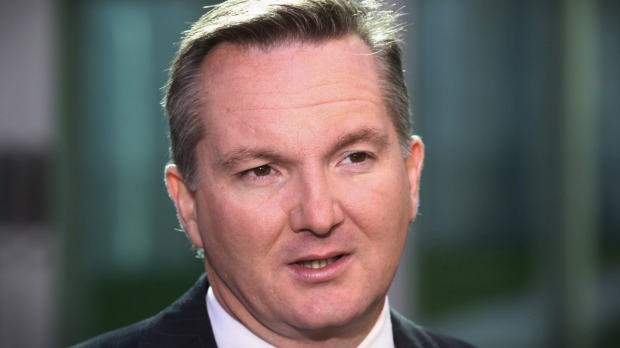
Labor has signalled it is prepared to block savings measures in the government’s mid year economic and fiscal outlook, including the scrapping of incentive payments meant to encourage bulk-billing for diagnostic and pathology services.
The Turnbull government plans to slash the health budget by more than $650 million and has moved to abolish the payments introduced by Labor in 2009-2010.
The Australian Medical Association has described the proposal as a “co-payment by stealth” but Treasurer Scott Morrison has called on those criticising the government’s proposals to “show us the alternatives”.
Opposition treasury spokesman Chris Bowen said on Wednesday Labor was “deeply concerned” some of the savings measures proposed to rein in budget spending and that changes to bulk-billing incentives could delay people from seeking treatment and tests they need.
The cuts to government funding of blood tests and x-rays sparked a sell-off in healthcare stocks on Tuesday as investors reacted badly to the news.

“It appears the Treasurer has simply not done his homework and his consultation about this measure. I saw them both saying yesterday there will be no impact on people from these cuts,” Mr Bowen told the ABC on Wednesday.
“Well if there’s no impact on people from billions of dollars worth of cuts you have to question how the system’s going to work.”
Mr Bowen said the government was showing the same pattern of behaviour it had exhibited during the much-criticised 2014 budget, where it made decisions without considering their “real world implications”.

“This is the sort of approach that the government’s taken from the 2014 budget onwards, a saving or a cut which might look attractive to them in the first instance, they don’t do the consultation, the real world implications aren’t understood and it’s left to the Parliament to clean up the mess,” he said.
“These changes will have been presented to (former treasurer Joe) Hockey and he rejected them as going too far.
“The way these things work, I can tell you as a former treasurer, is that all the same ideas get brought out for a new treasurer and sometimes a new treasurer accepts ideas that previous treasurers have rejected.”
He said Labor would not rule out blocking certain measures in the Senate as it believed some were worse than measures proposed in the 2014 budget.
Opposition Leader Bill Shorten said Labor would study the fine print of what the government was proposing but its initial instinct was to “stand up in defence of Medicare”.
“The assault on Medicare isn’t just about cutting payments which will ultimately make it more expensive for people who are suffering cancer to get treatment,” Mr Shorten said.
“An attack on Medicare is an attack on all Australians. Having universal health care is one of the things which helps Australian families keep their head above water, to help make ends meet.”
Mr Morrison said on Wednesday the government had no choice but to reduce spending but indicated he was prepared to negotiate with the opposition and crossbench.
“I’ve got a simple message for all those who take issue with the savings measures. Show us the alternatives,” he told the ABC’s AM program.
“I’ve had that practice before with the crossbench when we had pension changes from the 14-15 budget, when I was social services minister. I’ll take something off the table if someone can put something on the table of equal measure.”
He rejected the AMA’s suggestion that changes to bulk-billing incentives for pathology were a “co-payment by stealth”.
“Any area that is the subject of some savings measures in a budget have every right to raise issues. But to immediately partisanise this and politicise it in those terms is not a helpful way to have a mature debate about the issue,” he said.
“These are large companies that are involved in providing these services, there’s a lot of commercial pressures which keeps these prices down.
“These incentives are paid to the companies, not to patients. We’re seeing the rise in bulk-billing occurring regardless of these incentive payments.”
